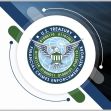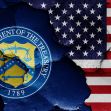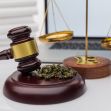A federal judge in Texas has declared a 156-year-old ban on at-home distilling unconstitutional, siding with a group advocating for the legalization of personal spirit production. This ruling marks a shift in the regulation of homemade alcoholic beverages, potentially paving the way for hobbyists to distill spirits like whiskey and bourbon for personal use legally.
U.S. District Judge Mark Pittman, appointed by former President Donald Trump, ruled on Wednesday that the longstanding ban on at-home distilling exceeded Congress's taxing power and violated the U.S. Constitution's Commerce Clause. The ruling came in response to a lawsuit filed by the Hobby Distillers Association, which represents individuals interested in home distilling.
The Hobby Distillers Association and four of its 1,300 members sued various federal agencies in December. The defendants included the Alcohol and Tobacco Tax and Trade Bureau (TTB), a U.S. Department of the Treasury division, and the U.S. Department of Justice, which enforces alcohol-related laws.
The statute at the heart of this legal battle is a federal prohibition dating back to the 19th century, which has long restricted the production of distilled spirits for personal use. This statute, codified in various sections of U.S. law, was originally implemented to control and tax the production of alcohol, ensuring that all distilled spirits were subject to federal oversight and revenue collection.
Enacted after the Civil War, the 156-year-old statute aimed to curb illicit distillation and ensure that alcohol production contributed to federal tax revenue. The law prohibited individuals from owning or operating stills for the purpose of producing distilled spirits, except under specific licenses primarily granted to commercial distilleries. The law was intended to prevent unregulated and untaxed alcohol production, which was prevalent at the time.
The relevant sections of the law are found in the Internal Revenue Code, which mandates that any person engaged in distilling must register their stills and obtain the necessary permits from the federal government. Violations of these provisions could result in severe penalties, including fines and imprisonment.
The Alcohol and Tobacco Tax and Trade Bureau (TTB), a division of the U.S. Department of the Treasury, enforces these regulations. The TTB oversees the licensing, taxation, and regulation of alcohol production, ensuring compliance with federal laws. Under these statutes, it is illegal for individuals to distill spirits at home without proper authorization.
One of the primary provisions of the statute stipulates that any person who distills spirits without obtaining the necessary permits and registrations is subject to criminal penalties. Additionally, the statute explicitly forbids the possession of distillation equipment with the intent to produce alcohol for beverage purposes. Furthermore, the law allows for the seizure and forfeiture of any illegal stills and related equipment found in violation of the regulations.
In its lawsuit, the Hobby Distillers Association argued that the statute overreaches by extending federal regulatory power into private homes where individuals wish to produce spirits for personal consumption. They contended that the law infringes on constitutional rights, particularly those related to limited government powers and personal freedoms.
Judge Pittman issued a permanent injunction preventing the enforcement of the ban against the Hobby Distillers Association's members. However, he stayed his decision for 14 days to allow the government to seek an appellate court stay.
In his ruling, Pittman concluded that the ban did not constitute a valid exercise of Congress's power to lay and collect taxes. He argued that the prohibition on at-home distilling did not raise revenue but merely criminalized an activity without any clear connection to tax collection.
"While prohibiting the possession of an at-home still meant to distill beverage alcohol might be convenient to protect tax revenue on spirits, it is not a sufficiently clear corollary to the positive power of laying and collecting taxes," Pittman wrote.
He further stated that the ban could not be justified under Congress's power to regulate interstate commerce, noting that it did not contribute to a comprehensive regulatory scheme for the alcohol industry.
Devin Watkins, a lawyer for the Hobby Distillers Association from the libertarian think tank Competitive Enterprise Institute, hailed the ruling as a victory for limited government powers. "This decision respects the rights of our clients to live under a government of limited powers," Watkins said in an email.
The ruling is a win for the Hobby Distillers Association and its members, particularly Scott McNutt, who received a letter from the TTB warning of potential civil and criminal liability after purchasing materials that could be used for distilling spirits. Judge Pittman noted that while three of the individual plaintiffs did not face a credible threat of prosecution without an injunction, the association and McNutt successfully demonstrated potential harm from the ban's enforcement.
The Justice Department had argued that the ban was essential for protecting substantial government revenue from taxes on distilled spirits. However, Judge Pittman dismissed this argument, stating that the ban did not directly contribute to tax revenue and merely criminalized at-home distilling.






